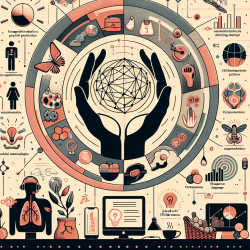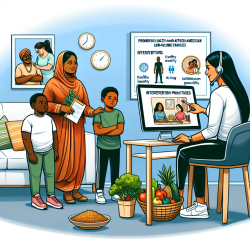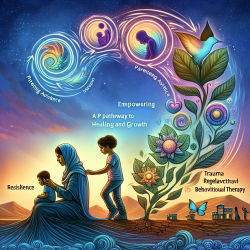As speech-language pathologists, we are committed to using data-driven decisions to improve outcomes for children with auditory neuropathy spectrum disorder (ANSD). The recent research article titled "ATP1A3 mutations can cause progressive auditory neuropathy: a new gene of auditory synaptopathy" (Han et al., 2017) provides critical insights that can help us refine our practices. This blog will discuss the findings of this research and suggest ways practitioners can integrate these insights into their clinical work.
Key Findings from the Research
The study by Han et al. (2017) explored the molecular etiology of sporadic, progressive ANSD in three unrelated subjects. Through whole exome sequencing, the researchers identified a de novo variant, p.E818K of the ATP1A3 gene, as a significant contributor to postlingual-onset auditory synaptopathy. This gene mutation was previously associated with CAPOS syndrome but had not been linked to ANSD until this study.
Implications for Clinical Practice
The identification of ATP1A3 mutations as a cause of ANSD has several important implications for clinical practice:
- Genetic Testing: Consider incorporating genetic testing into the diagnostic process for children with unexplained ANSD. Identifying ATP1A3 mutations can provide a clearer understanding of the etiology and guide treatment decisions.
- Comprehensive Neurological Assessment: Conduct thorough neurological assessments, including detailed history taking and examinations for ataxia, visual disturbances, and other CAPOS-related symptoms. This can help identify subtle syndromic features that might otherwise go unnoticed.
- Cochlear Implantation (CI): The study demonstrated favorable short-term outcomes for CI in patients with ATP1A3 mutations. Practitioners should consider CI as a viable option for children with ANSD due to ATP1A3 mutations, particularly when traditional hearing aids are ineffective.
- Long-term Monitoring: Given the potential for progressive degeneration, long-term monitoring of CI performance is crucial. Early intervention with CI might retard or attenuate the degeneration of spiral ganglion neurons.
Encouraging Further Research
While this study provides valuable insights, further research is needed to fully understand the role of ATP1A3 in hearing and to develop targeted interventions. Practitioners are encouraged to stay updated on the latest research and consider participating in or supporting studies that explore the genetic underpinnings of ANSD.
To read the original research paper, please follow this link: ATP1A3 mutations can cause progressive auditory neuropathy: a new gene of auditory synaptopathy.










